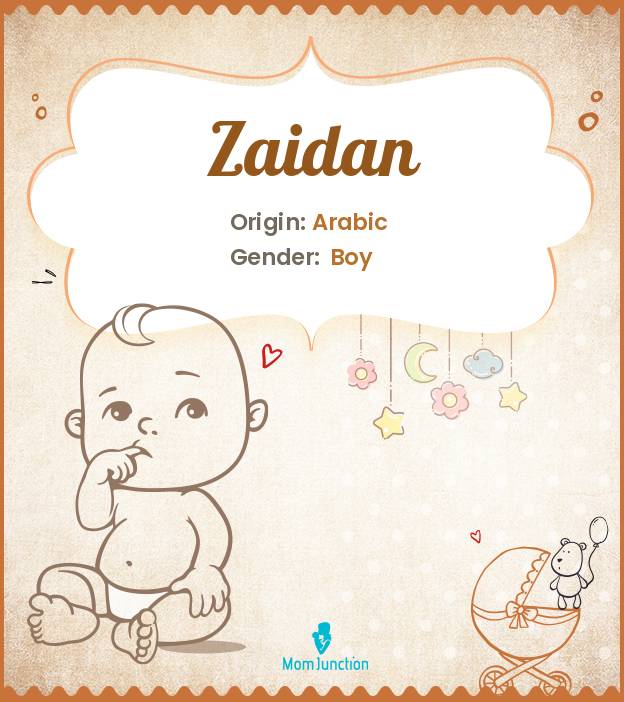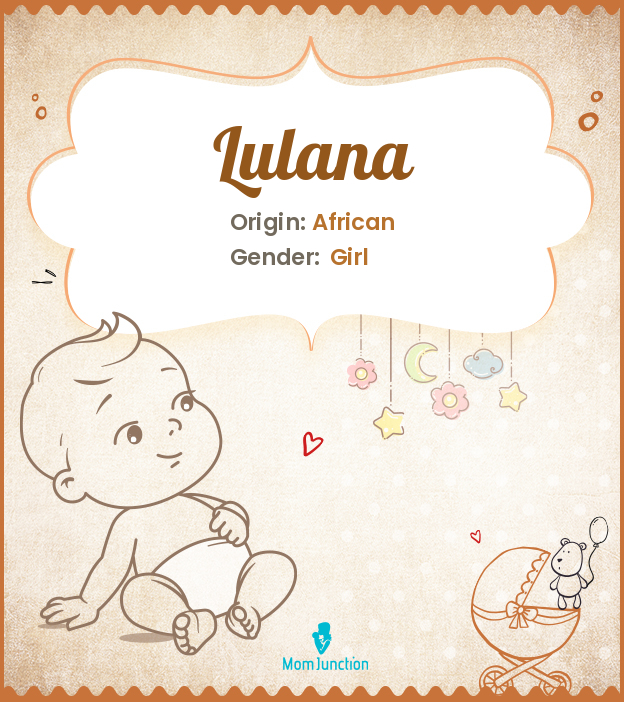
Image: Shutterstock
If you love Spain and want to know more about this country and its tradition, why not start with Spanish surnames? Names are a wonderful way to start knowing about a country.

Spain is known for its food, dance, and even beautiful beaches. It is mesmerizingly beautiful and one of the popular travel destinations. So whether you are planning a trip there or just quenching your thirst for knowledge, here is a list of Spanish surnames that you might want to have a look at.
Key Pointers
- Spanish last names are typically based on family lineage, birthplaces, occupations, or descriptive characteristics.
- The ‘ez’ suffix found in Spanish surnames represents a tradition of naming based on paternal lineage, indicating ‘son of.’
- Popular three-syllable Spanish surname options include Hidalgo, Lucia, and Mathias.
- Abraham, Balcazar, and Gasper are examples of some Spanish surnames that hold significance in Hebrew.
Cultural Significance Of Spanish Surnames
Spanish surnames carry deep cultural significance and often reveal a wealth of historical and familial information. They generally indicate geographical origins, occupations, or ancestral lineage, offering valuable insight into a family’s history and traditions. A Spanish person bears two surnames—the first is the father’s first surname, while the second is the mother’s first surname.
List Of Common Spanish Surnames Or Family Names
1. Abarca
Abarca is an occupational last name. It is derived from the name of a type of leather used to make shoes or sandals. This leather was available only on the Balearic Island, Spain. The maker of these shoes was referred to as Abarca.
2. Abaroa
It is derived from the Basque word ‘abaro’ which means ‘refuge.’
3. Abascal
Originated from the Basque language, this Spanish surname refers to ‘priest’s street.’
4. Abasolo
This name originated from the Basque word ‘abas’ meaning ‘priest’s meadow.’
5. Abel
Abel is a Spanish surname derived from the Hebrew name ‘Hevel’ referring to ‘breath.’
6. Abello
Abello is derived from the Latin name ‘Abellio’ who is also referred to as a Pyrenean god.
7. Abraham
This last name comes from the Bible and means ‘father of many’ in Hebrew.
8. Abreu
Abreu is a common Spanish surname especially with those of Portuguese and Sephardic Jewish descent. It is derived as a toponymic name referring to the name of a place. It also refers to be a variant of Abraham in Hebrew.
9. Acosta
It is derived from ‘Costa’ referring to ‘riverbank’ in Portuguese. This Spanish last name has roots of origin in Portugal, Italy, and Catalonia.
10. Adriano
This last name is derived from ‘Hadria’ that was the name of Roman settlements. Adriano is thus a toponymic surname.
11. Agramunt
This topographical last name denotes a person who belonged to the town of Agramunt in Spain.
12. Agua
Agua in Spanish means ‘water.’ It refers to someone who lives or works near water.
13. Aguado
This name is a variant of Agua. The name also refers to people who live or work near water.
14. Aiza
It is derived from the Basque word ‘aitz’ that means ‘rock’ or ‘stone.’
15. Alamilla
This Spanish last name is derived from the word ‘alamillo’ that means ‘a poplar tree’ or ‘aspen..
16. Alberto
Alberto is one of the most popular Mexican surnames. It is derived from the word ‘Albert’ referring to ‘noble’ or ‘bright.’
 Trivia
Trivia17. Aldana
This is a toponymic last name derived from the name of a Basque town called ‘Aldats’ referring to ‘a slope.’
18. Alfaro
It has two possible references, one being the name of a city called Alfaro in La Rioja, Spain. Alfaro also means ‘a watchtower’ in Arabic.
19. Alcaraz
Alcaraz is a habitation surname referring to the name of a place in Spain. The name of the place likely comes from Arabic in which it means ‘the cherry.’
20. Alegria
Alegria has Spanish and Portuguese origins and refers to ‘joy’ or ‘happiness.’
21. Alejo
Alejo is derived from the ancient Greek name ‘Alexis’ referring to ‘helper,’ ‘defender’ or ‘protector.’
22. Alonso
Alonso is the Spanish version of ‘Alfonso,’ which means ‘noble.’ It was also the name of many emperors who ruled parts of Spain and Portugal.
23. Allende
It means ‘on the other side’ in Spanish. ‘Allende’ is a toponymic surname originally used for referring to someone who lived on the other side of a landmark.
24. Alvarado
This toponymic name is derived from the name of a place in Spain. Another suggestion is the name comes from the word ‘alba’ meaning ‘sunrise’ or ‘white.’
25. Alvarez
This patronymic name means ‘son of Alvaro.’ The word Alvaro is derived from ‘Alpher’ which refers to ‘army’ or ‘warrior.’
26. Amador
Amador is a variant of the Latin word ‘Amator’ referring to ‘lover of God.’
27. Amaya
Amaya is a toponymic surname referring to a village located in the Burgos province of Spain. The name ‘Amaya’ likely comes from the Basque word ‘Amaia’ that means ‘the end.’
28. Amor
It comes from the Latin word ‘Amor’ meaning ‘Love.’ It was also the name of Cupid, the Roman God.
29. Andrada
It is derived from the Greek word ‘Andreas,’ and this Spanish surname means ‘a man’ or ‘masculine.’
30. Andres
It is related to the surname ‘Andrada.’ ‘Andres’ comes from the Greek word ‘Andreas’ meaning ‘a man,’ ‘manly’ or ‘masculine.’
31. Andreu
Andreu is the Catalan version of ‘Andrew,’ which again comes from Andreas.
32. Angeles
Angeles is a surname derived from the title of the ‘Virgin Mary Nuestra Señora la Reina de los Ángeles.’ The surname refers to ‘angels.’
33. Anguiano
This is a toponymic last name and refers to people who belonged to the town of Anguiano in Spain.
34. Antunez
Antunez refers to the ‘son of Antonio.’ The name Antonio is derived from a notable Roman family name ‘Antonius.’
35. Aquino
This Spanish surname is derived from the name of an Italian town near Rome, making it a toponymic last name. The word ‘Aquino’ is derived from the Latin word ‘aqua’ meaning ‘water.’
36. Araujo
The toponymic Spanish surname refers to several places of this name in Portugal.
37. Araya
It is a topographic Spanish surname and denotes a person who belongs to several places named Araya or Araia in Spain.
38. Arce
Arce refers to a ‘maple tree’ in Spanish.
39. Arechavaleta
This is a variant of ‘Aretxabaleta’ which is also the name of a town in Spain. Another reference suggests the meaning to be ‘oak trees’ in Basque.
40. Arenas
It is derived from the Spanish word ‘arena’ referring to ‘sand.’
41. Aritza
It is derived from the Basque word ‘Aritz’ meaning an ‘oak tree.’
42. Armando
This name is derived from the German word ‘Herman’ and refers to an ‘army man.’
43. Armendarez
It is a variant of the name ‘Armendariz,’ which comes from the Latin word ‘armentarius’ meaning a ‘herdsman.’
44. Armenta
It is derived from the Latin word ‘armenta’ that refers to ‘herd.’
45. Arreola
This Spanish last name is a variant of ‘Arriola’ that originated in Basque. It is the combination of two Basque words ‘arri,’ meaning ‘stone,’ and ‘ola,’ meaning ‘house.’
46. Arroyo
It means a ‘stream,’ ‘channel,’ or ‘creek’ in Spanish. ‘Arroyo’ is likely a toponymic surname referring to someone living along or near a water stream.
47. Asis
It referred to someone from Assisi in Italy. ‘Asis’ is the Spanish name for Assisi.
48. Asturias
A topographic name, Asturias is the name of a place in Spain. Another reference suggests it could have been derived from the Basque words ‘asta’ and ‘ur’ referring to ‘rock’ and ‘water’ respectively.
49. Atienza
Atienza is an eponymous last name originated as a noble family name from the Manchego municipality (also called La Mancha) in Spain.
50. Avalos
This last name is derived from the name of a place called ‘Abalos’ located in the Soria province of the Basque country.
51. Avila
This surname is derived from the name of a province called Avila within the community of Castile and Leon in Spain.
52. Azarolla
This Spanish surname is derived from the Basque word ‘azeri’ referring to a ‘fox.’
53. Badilla
It is a variant of Badillo. This Spanish surname is a toponymic name derived from either Vadillo de la Sierra in Avila, Spain or Valillo de la Guarena in Zamora, Spain.
54. Balcazar
A variant of the name ‘Belshazzar,’ this surname refers to ‘Belprotect the king’ in Hebrew. ‘Bel’ was the name of a king in the Babylonian Empire.
55. Balderas
This name is derived from the Spanish phrase ‘Valle de eras’ referring to ‘Valley of eras.’ It also denotes a toponymic name derived from ‘Valderas’ in the Leon province of Spain.
56. Banderas
It means a ‘flag’ or a ‘banner’ in Spanish. It is probably an occupational surname given to those who worked as a flag-bearer.
57. Barbero
It is an occupational surname meaning a ‘barber.’
58. Bardales
Bardales is a toponymic Spanish surname referring to ‘a place covered with thorns.’
59. Baro
‘Baro’ is an Old Germanic word meaning a ‘warrior,’ ‘man’ or a ‘servant.’
60. Barros
This name is derived from the Spanish and Portuguese word referring to ‘clay’ or ‘mud.’ Barros has two references; it can be an occupational last name for ‘people who work with clay or mud.’ It is also a suggested topographic surname for ‘people who live near clay or mud.’
61. Basurto
Basurto means ‘middle of the forest.’ It is also a toponymic surname which refers to the name of a place in the Basque country.
62. Bautista
Bautista is derived from ‘Baptiste,’ which in turn is derived from the Greek word ‘Bapto’ meaning ‘to dip.’
63. Bello
It is the Spanish word for ‘beautiful,’ ‘attractive,’ or ‘lovely.’
64. Belmonte
Belmonte is the name of several places in Italy and Spain. The word means ‘a beautiful mountain.’
65. Bengochea
It is a variation of the word ‘Bengoetxea,’ which in the Basque language means ‘the house furthest down.’
66. Benito
It is derived from the word ‘Benedict,’ which comes from the Latin word ‘Benedictus’ meaning ‘blessed.’
67. Benitez
It is related to the surname ‘Benito.’ The patronymic last name of ‘Benitez’ refers to the ‘son of Benito.’
68. Bermudez
A patronymic surname which means ‘son of Bermudo.’ The name ‘Bermudo’ is derived from the Latinized German word ‘Waramunt,’ meaning ‘vigilant’ or ‘protection.’
69. Bernat
Bernat is a variant of ‘Bernard,’ which comes from the German word ‘Bern.’ Bern means ‘strong or brave as a bear.’
70. Bernardo
Bernardo is related to Bernat, and it means ‘Bernard’ too.
71. Berra
Berra is a derivative of the Spanish word ‘Berrar’ that means ‘to scream,’ ‘ shout,’ or ‘bellow.’
72. Borja
This is a toponymic last name referring to the name of a town in Spain.
73. Bosch

It originates from the Italian word ‘Bosco,’ which means ‘woods’ or ‘forest.’
74. Botello
Botello is an occupational Spanish last name referring to a ‘maker of bottles.’
75. Botero
It is an occupational Spanish last name that either means a ‘bottler’ or ‘boat maker.’
76. Bover
Bover originated in Italy, migrated, and evolved as a Spanish surname. It refers to ‘bull’ or ‘ox.’
77. Cabello
This Spanish surname refers to ‘hair’ or a person with a ‘lot of hair.’
78. Cabrera
This name is derived from the Latin word ‘Capraria’ referring to a ‘place of goats.’
79. Caldera
This Spanish last name means ‘basin’ or ‘a crater,’ and is also used to refer to a ‘boiler’ or a ‘cauldron.’
80. Calderon
Calderon is related to the word ‘Caldera.’ The Spanish surname ‘Calderon’ is an occupational one and likely used to refer to a tinker – someone who makes and repairs metal vessels (pots, kettles, pans, cauldrons).
81. Camarillo
It is likely derived from the Spanish word ‘Camera’ referring to a ‘chamber’ or ‘room.’
82. Campana
It is the Spanish word for ‘bell.’ This Spanish occupational last name refers to the ‘maker of bells.’
83. Campo
It is a spelling variant of ‘Campos’ and means ‘field’ in Spanish.
84. Candella
This Spanish surname is derived from the word ‘Candela’ referring to ‘a candle.’
85. Cantu
Cantu is a toponymic last name referring to the town of Cantu in Italy.
86. Caraballo
It is borrowed from the Galician word for ‘oak tree.’ It is likely a toponymic Spanish surname for someone who lived by an oak tree or an oak forest.
87. Cardona
This toponymic last name refers to the name of a town in the Catalonia region of Spain.
88. Cardoso
This is a variant of ‘cardozo’ derived from the Latin word ‘carduus’ meaning ‘thorny.’
89. Caro
Caro means ‘beloved’ or ‘dear’ in Spanish.
90. Carrera
Carrera is a toponymic surname and refers to ‘thoroughfare’ or ‘someone living by a main road.’
91. Casas
It is the plural version of the Spanish word ‘Casa,’ which means ‘house.’
92. Castellano
Castellano is a variant of ‘castilla’ or ‘castro’ referring to ‘a castle’ in Spanish.
93. Castillo
A variant of ‘Castilla’ or ‘Castellano,’ this surname refers to a ‘castle.’
94. Chavez
It is a toponymic Spanish surname derived from the word ‘Chaves,’ which is the name of a Portuguese city.
95. Che
Having originated in Argentina, this word is an expression of ‘hey’ and evolved as a Spanish surname.
96. Ciervo
It is the Spanish word for a ‘deer’ or a ‘stag.’
97. Clemente
This surname is derived from the Latin name ‘Clemens’ or ‘Clementius’ referring to ‘merciful’ or ‘gentle.’
98. Coello
It is adapted from the Portuguese word ‘Coelho,’ which means ‘rabbit.’ This Spanish surname must be an occupational one as it originally referred to the ‘seller of rabbits.’
99. Colon
This is the Spanish variation of ‘Colombo’ derived from ‘Colomba,’ which is the Italian word for ‘dove.’ It likely referred to ‘dove keepers.’
100. Contrera
It is a toponymic surname from ‘Conteraras’ located in the Burgos province of Spain. Another reference could also be the Spanish word ‘Contrario,’ which means contrary.
101. Costa
Costa is the Spanish word for ‘coast’ and can also refer to a ‘riverbank’ or a ‘slope.’
102. Costales
It is a plural of the Spanish word ‘Costal,’ which means a ‘sack’ or ‘bag.’
103. Crespo
It is the Spanish word for ‘curly’ and refers to someone with curly hair.
104. Cruz
Cruz means ‘cross’ and denotes ‘a person who lives near the crossroads.’
105. Cuellar
It is a toponymic last name referring to the name of a town in Segovia province of Spain.
106. Cueva
This toponymic last name refers to ‘a cave’ or originally referring to ‘someone who lives in a cave.’
107. Dali
This surname is derived from the German word ‘adal,’ which means ‘noble.’
108. De Avila
This is derived from the name of a province called Avila, in the present-day community of Castile and Leon in Spain.
109. De Jesus
This patronymic Spanish surname is derived from the name of Jesus.
110. De la cruz
This Spanish last name means ‘of the cross’ or ‘of the crossroads’ – likely referring to someone who lived at a crossroads.
111. De la Pena

The word ‘Pena’ (written as ‘Peña’ in Spanish) means a ‘rock,’ ‘boulder’ or a ‘cliff.’ This toponymic Spanish surname means ‘of the rock’ or ‘of the cliff.’.
112. De la Rosa
This Spanish surname means ‘of the rose.’ It may have been a reference to someone who grew roses or lived near a field of roses.
113. De Toro
It has two references, one belonging to the name of a place called ‘Toro’ in Spain and another refers to ‘taurus’ or a ‘bull’ in Spanish.
114. Del Campo
In Spanish, it means ‘from a field’ or someone who worked or lived near a field.
115. Delgado
Delgado is a Spanish last name, which means ‘thin’ or ‘slim.’ The word ‘Delgado’ originates from the Latin word ‘delicatus’ meaning ‘thin’ or ‘delicate.’
116. Diaz
Diaz in Spanish refers to a ‘son of Diego.’ The name ‘Diego’ originates from Latin and means ‘teaching.’ Another reference also states that it comes from the word ‘dias,’ which means ‘days’ in Spanish. It is also one of the widely used Argentinian last names.
 Trivia
Trivia117. Diego
It is derived from the Latin word ‘Didacus’ or ‘Didache’ and means ‘teaching.’
118. Domingo
Domingo is the Spanish variant of the Latin name ‘Dominicus,’ which means ‘of the lord.’
119. Duarte
Duarte is the Spanish form of ‘Edward’ meaning ‘rich guard.’
120. Duran
Duran is a Jewish or Catalan word referring to ‘steadfast.’ In other derivatives, this name also suggests that it meant ‘enduring’ or ‘to be strong.’
121. Echeverría
This is a toponymic last name derived from the name of a place called Etxeberria situated in the Basque country of Spain.
122. Elizondo
It is derived from the Basque word ‘Eleiza’ referring to ‘people who lived near or under a church.’
123. Enrique
It is derived from the German name ‘Heimrich’ referring to ‘home-ruler.’
124. Escamilla
It is a toponymic surname derived from the name of a town in Spain.
125. Escandon
It is likely to have been derived from the name of a field which denoted ‘the cultivation of a special variety of wheat.’
126. Escarra
It is derived from ‘Esquerra,’ which is the Catalan word for ‘left-handed.’ This name was probably used to refer to left-handed people.
127. Escudero
The surname Escudero comes from the word ‘escudero,’ meaning ‘shield carrier’ or ‘assistant.’ This surname was given to those with this job.
128. Esparza
It is a toponymic surname referring to the name of a town in Spain.
129. Esperanza
Esperanza is the Spanish variant of ‘Sperantia’ which means ’to hope’ in Late Latin.
130. Espina
It means ‘thorn’ in Spanish and refers to people who lived near a thorny bush. Other variants of the name are ‘Espino,’ ‘Espinosa’ or ‘Espinoza.’
131. Esteban
It is the Spanish form of the name ‘Stephen,’ which comes from the Greek word ‘Stephanos’ referring to a ‘crown.’
132. Estrada
Estrada is another toponymic surname that refers to ‘street’ or ‘road’ in Spanish.
133. Esposito
This name originated in Italy and is a variant of the Italian word ‘exponere’ or ‘exposito’ referring to ‘exposed.’
134. Felix
It is derived from a Roman name. ‘Felix’ refers to ‘lucky’ or ‘successful’ in Latin.
135. Fernandez
Fernandez is one of the common Filipino surnames or last names of Spanish origin. This patronymic last name refers to ‘son of Fernando’ or ‘son of Ferdinand.’ Ferdinand has several origins and means ‘a brave journey.’
136. Ferreira
It is a surname of Italian, Spanish and Catalan origin. Ferreira is a toponymic surname referring to ‘someone who lived or worked near a forge of ironworks.’
137. Florentino
It is derived from the word ‘Florence’ or ‘Florentia.’ This surname means ‘prosperous’ or ‘flourishing.’
138. Flores
It means ‘son of Floro.’ The name ‘Floro’ comes from the Latin word ‘Flos’ meaning ‘flower.’
139. Fonseca
This is a toponymic surname derived from Latin and refers to people who lived near a ‘dry spring.’
140. Frontera
Frontera is a geographical last name referring to ‘boundary’ or ‘frontier.’
141. Fuentes
It is the plural version of the Spanish word ‘Fuente,’ which means a ‘spring,’ ‘fountain,’ or a ‘well.’
142. Gabaldon
It is a toponymic last name and refers to a place called ‘Gabaldon’ in the Cuenca province of Spain.
143. Gallego
Gallego is a toponymic last name referring to a person who came from the Galicia province in the northwest region of Spain.
144. Gallo
It is the Spanish word for a ‘rooster.’ It was likely associated with people who took a lot of pride in themselves.
145. Garcia

It is derived from the Basque word ‘hartz’ referring to a ‘bear.’
146. Gasper
This name is a variant of ‘Jasper’ and refers to a ‘treasurer’ in Hebrew.
147. Gomez
Gomez is derived from the medieval Portuguese word ‘goma’ referring to a ‘man.’
 Trivia
Trivia148. Gonzales
Gonzales is a variant of ‘Gonzalez’ and refers to a ‘son of Gonzalo.’ The name ‘Gonzalo’ comes from the medieval era and means ‘battle’ or ‘war.’
149. Gordon
It originated as a Scottish surname that later migrated to Spain. This surname refers to a ‘spacious fort.’
150. Guerra
Guerra means ‘war’ in Spanish. It is a nickname likely given to a quarrelsome person or someone who is engaged in warfare.
151. Guiterrez
It is a variant of the name ‘Gutierrez,’ which is a patronymic Spanish surname meaning‘son of Gutierre.’ The name ‘Gutierre’ has Germanic origins and likely means ‘he who rules’ or ‘ruler of the army.’
152. Hernandez
This Spanish surname refers to ‘son of Hernando’ or ‘son of Fernando.’ Fernando or Ferdinand means ‘brave journey’ in Old Spanish.
153. Hidalgo
Hidalgo is a Spanish surname and refers to a ‘nobleman’ or ‘gentleman.’
154. Huerta
It is the Spanish word for an ‘orchard’ or a ‘garden.’
155. Iglesias
This name refers to a ‘church’ in Spanish. The singer Enrique Iglesias is a famous bearer of this surname.
156. Jaramillo
Jaramillo is a Spanish toponymic last name referring to the name of a place located in the Burgos province of Spain.
157. Javier
It is derived from the Basque word ‘Etxeberria’ referring to ‘the new house.’
158. Jiminez
Jiminez is a patronymic Spanish surname referring to ‘son of Jimeno.’ The name ‘Jimeno’ is believed to have derived from the name ‘Simon,’ which means ‘he has heard’ in Hebrew.
159. Juaquin
It is a variant of ‘Joachim.’ This surname in Hebrew refers to ‘lifted by God’ or ‘lifted by Yahweh.’
160. Juarez
It is an occupational last name derived from the Latin word ‘Suerius’ referring to an ‘army.’
161. La Torre
La Torre is a Spanish surname that means ‘a tower.’
162. Lago
Lago is a toponymic surname referring to a ‘lake’ or ‘someone who lived by a lake.’
163. Lanzo
Lanzo is derived from an Old Germanic word ‘landa’ referring to ‘land.’
164. Leo
Leo originated from a Latin word that refers to a ‘lion.’
165. Lopez
This patronymic surname refers to ‘son of Lope.’ The name ‘Lope’ comes from the Latin word ‘Lupus’ meaning a ‘wolf.’
166. Lorenzo
It is derived from the word ‘Laurence’ or ‘Laurentum’ referring to the name of a city in ancient Italy. Thus, Lorenzo is a toponymic surname.
167. Lovato
It originated in Italy, and is derived from ‘Lupatus,’ a Late Latin word that means ‘like a wolf.’
168. Lucia
This name is derived from the Latin word ‘lux’ meaning ‘light.’
169. Maduro
Maduro is a Spanish surname that means ‘ripe’ or ‘mature.’
170. Manuel
It is derived from ‘Emmanuel,’ which means ‘God is with us’ in Hebrew.
171. Marco
Marco is derived from the Latin word ‘Marcus’ referring to the ‘Roman God Mars.’
172. Mareno
Mareno is a variant of ‘Moreno,’ which means ‘dark’ or ‘brown’ in Spanish. This surname may have originally referred to people with dark or brown hair.
173. Martinez
Martinez means ‘son of Martin.’ The name ‘Martin’ comes from the Roman name ‘Martinus,’ which refers to the Roman God Mars.
174. Mathias
It is derived from the word ‘Matthew’ meaning ‘gift of Yahweh’ in Hebrew.
175. Mejia
It is a Spanish variant of ‘Messiah,’ which originates from Hebrew and means ‘savior’ or the ‘anointed one.’
176. Mendoza
It has originated in the Basque region and refers to a ‘cold mountain.’
177. Montes
This surname means ‘mountains’ in Spanish.
178. Morales
It is related to the Spanish word ‘Morera,’ which means a ‘mulberry tree.
179. Najarro
This Spanish surname is a toponymic last name referring to a place called ‘Najarro’ in the Caceres province of Spain.
180. Neri
It is derived from the Italian word ‘Nero,’ which means ‘black’ or ‘dark.’
181. Nunez
Nunez refers to a ‘son of Nuno.’. It is derived either from the Latin word ‘nonus’ meaning ‘ninth’ or ‘nunnus’ meaning ‘grandfather.’
182. Ortega
Ortega is a Spanish surname referring to the plant called ‘nettle’ or ‘urtica.’
183. Ortiz
It means ‘son of Orti.’ The name ‘Orti’ may have been derived from the Latin word ‘Fortis,’ which means ‘ ‘brave,’ ‘strong’ or ‘powerful.’
184. Padilla
Padilla in Spanish refers to a small ‘frying pan’ or a ‘bread pan.’
185. Padron
Padron is a toponymic last name referring to a town in the Galicia province of Spain. Another variant suggests it could come from the Galician language and mean ‘patron’ or ‘master.’
186. Palacios
The surname Palacios in Spanish has roots in the Latin word ‘palatium,’ which means ‘palace.’ People who lived or worked in a palace were given this surname.
187. Palmero
Palmero is a toponymic surname referring to someone from the city of ‘Palma’ in Spain. The word ‘Palma’ also refers to ‘palm’ in Spanish.
188. Parilla

Parilla is a toponymic Spanish surname derived from the word ‘parra’ referring to a ‘vine’ or a ‘grapevine.’ The surname was likely used by those who lived near vineyards.
189. Pena
It is the English spelling of the Spanish surname ‘Peña.’ The word means a ‘rock,’ ‘boulder,’ or a ‘cliff.’
190. Peralez
It is a variant of the name ‘Perales.’ The word is derived from the Spanish word ‘Peral’ referring to a ‘pear tree.’
191. Perez
Perez refers to a ‘son of Pedro.’ The name ‘Pedro’ is the Spanish form of the name ‘Peter,’ which comes from the Greek word ‘petros,’ referring to a ‘stone.’
192. Pinto
Pinto refers to ‘colorful’ or ‘painted.’ It is also a toponymic surname derived from the name of a place called ‘Pinto’ in Madrid.
193. Prado
The toponymic last name refers to someone from any of the several places called ‘Prado’ in Spain and Portugal. Prado is the Spanish word for a ‘meadow.’
194. Puerta
Puerta is the Spanish word for a ‘door’ or ‘gate.’ It is a toponymic last name referring to people who lived near the ‘gates of a town.’
195. Real
Real is derived from a Southern French word meaning ‘Royal.’
196. Reyes
If you are looking for last names that start with R, check out Reyes. Originating from the word ‘Rey’ referring to a ‘king’ in Spanish, the name gives a royal feel.
197. Rivas
Rivas is a toponymic surname for someone who came from any of the several places called ‘Rivas’ or ‘Ribas’ in Spain.
198. Rivera
It is derived from the Spanish word ‘Ribera’ meaning ‘river bank’ or ‘shore.’
199. Rodriguez
It refers to ‘son of Rodrigo.’ The name ‘Rodrigo’ comes from the name ‘Roderick,’ which has Germanic origins and means ‘famous power.’
200. Rojas
The name is derived from the word ‘Rojo’ meaning ‘red’ in Spanish. It likely referred to people with red hair or complexion.
201. Romero
Romero refers to ‘pilgrim to Rome.’ The word ‘Romero’ also refers to the rosemary plant in Spanish.
202. Rozario
It is a variant of the name ‘Rosario,’ which means ‘rosary beads’ or ‘prayer beads.’
203. Rubio
Rubio is the Spanish word for ‘blond’ and originally may have referred to people with blond hair or lightly-colored hair.
204. Sala
Sala is an occupational surname referring to a ‘worker at a manor house.’
205. Salamanca
This toponymic surname refers to people belonging to Salamanca, a city situated in the northwestern part of Spain.
206. Salas
Salas is a plural of ‘Sala’ referring to a ‘person who works at a manor house.’
207. Salazar
It combines the Spanish word ‘sala’ meaning ‘hall’ and the Basque word ‘zahar’ meaning ‘old.’ The name ‘Salazar’ thus means ‘old hall.’ The name may also be toponymic and refer to people originally from the town of Salazar in the Burgos province of Spain.
208. Salvador
It comes from the Late Latin word ‘Salvator,’ which means ‘savior.’
209. Salvo
It is derived from the old Roman word ‘Salvius,’ which comes from the Latin word ‘Salvus’ that means ‘safe.’
210. San Miguel
San Miguel is a toponymic name that refers to people who lived near the church of ‘St. Michael.’ The name Michael comes from Hebrew and means ‘who is like God.’
211. Sanchez
It means ‘son of Sancho.’ The name ‘Sancho’ comes from the Late Latin word ‘Sanctius,’ which means ‘saintly’ or ‘holy.’
212. Santana
It is a combined form of the name ‘Saint Anna.’ The word ‘Anna’ is derived from the Hebrew word ‘Hannah,’ which means ‘favor’ or ‘grace.’ Santana may also be a toponymic name referring to people who lived near the church of ‘St.Anna.’
213. Santos
It means ‘saints’ in Spanish. This surname likely referred to ‘saint’ or a ‘pious person.’
214. Santiago
The name is derived from the name of ‘Saint James.’ The surname ‘Santiago’ is a toponymic surname referring to people who lived around the church of ‘St.James.’
215. Sarto
Sarto is an occupational last name and comes from the Italian word for a ‘tailor.’
216. Serrano
It means a ‘series of mountains’ or a ‘mountain range’ in Spanish. The topographical name refers to people who lived near a ‘mountain ridge’ or ‘chain of hills.’
217. Sevilla
The toponymic surname refers to people who originally belonged to the city of ‘Seville’ in Spain.
218. Silvera
It is a variant of the name Silveira, which comes from the Portuguese word ‘Silva’ referring to ‘woods’ or a ‘woodland.’
219. Solano
Solano is a toponymic surname referring to those who belonged to any of the many places called ‘Solano’ in Spain. The word ‘Solano’ comes from the Spanish word ‘Sol’ meaning the ‘sun.’
220. Sosa
Sosa is a variant of ‘sousa’ and is derived from the Latin word ‘salsus’ that refers to ‘salty.’ It is also a toponymic name referring to people who lived near River Sousa.
221. Sotomayor
This is a popular toponymic surname in Spain and likely referred to people who lived in villages surrounded by ‘thickets’ or ‘groves’ or a ‘forest.’
222. Suarez
Suarez refers to ‘son of Suero.’ The name Suero is derived from the Medieval Spanish word ‘Sueris’ meaning an ‘army.’
223. Tapia
Tapia refers to a ‘mud wall’ or ‘wall’ in Spanish.
224. Tadeo
This last name is derived from ‘Thaddeus’ that comes from the Ancient Greek word ‘Thaddaios’ meaning ‘heart.’
225. Teodoro
It is the Spanish variant of the name ‘Theodore,’ which comes from the Greek name ‘Theodoros’ meaning ‘God’s gift.’
226. Tineo
Tineo is a toponymic last name for someone from the place called ‘Tineo’ in the Asturias province of Spain.
227. Toledo
This toponymic name refers to a city called ‘Toledo’ in central Spain.
228. Torrez
Torrez is a variant of ‘Torres,’ which is the plural of the word ‘Torre’ meaning a ‘tower’ in Spanish. This Spanish surname likely refers to a ‘person who lived inside or near a tower.’
229. Trevino
Trevino is a toponymic surname referring to the name of several places in Spain.
230. Trinidad
Trinidad refers to ‘trinity’ or ‘holy trinity’ in Spanish.
231. Trujillo
Trujillo is a toponymic Spanish surname referring to a town of the same name in Spain.
232. Urbano
Urbano is a variant of the Latin name ‘Urbanus’ and refers to ‘city-dweller.’
233. Urias
This is derived from the Hebrew name ‘Uriyah’ referring to ‘Yahweh is my light.’
234. Valdez
It means ‘son of Baldo.’ The name ‘Baldo’ is derived from the Old German word ‘bald,’ meaning ‘bold’ or ‘brave.’
235. Valenciano
This surname is derived from the name of the Spanish city ‘Valencia’ thus making it a toponymic last name.
236. Vallez
It is a variant of the word ‘Valles,’ which means ‘valleys.’ This surname was likely a family name of people who lived around valleys in Spain.
237. Vargas
The name is a plural of the word ‘Varga,’ which in some Spanish dialects means a ‘thatched hut’ or ‘steep slope’ or a ‘pastureland.’
238. Vasco
The name comes from the Medieval Spanish and Old Basque word ‘Velasco,’ which means a ‘crow.’
239. Vega
Vega means a ‘meadow’ in Spanish. The surname is toponymic and refers to a ‘dweller in the meadow.’
240. Vela
It comes from the Spanish word ‘Vela,’ which means ‘sail’ or it may even refer to its other meaning that is ‘being watchful.’
241. Velasquez
It is a variant of the word ‘Velasco,’ which means ‘crow’ in Medieval Spanish and Old Basque.
242. Vera
Vera is the Spanish word for ‘riverbank’ or ‘border.’ The surname is toponymic and refers to people who originally lived by the riverbank or along the border.
243. Verde
Verde refers to ‘green’ in Spanish.
244. Vidales
This name is derived from the Latin name ‘Vitalis,’ which comes from the Latin word ‘Vita’ meaning ‘life.’
245. Villanova
This is a toponymic last name that refers to a ‘new settlement.’ The surname likely has Latin origins.
246. Villanueva
This is a spelling variant of ‘Villanova’ referring to a ‘new settlement.’
247. Villas
Villas is derived from ‘Villads’ or ‘Willihad,’ which comes from Old German and refers to a ‘will for a battle’ or a ‘desire for combat.’
248. Yanez
Yanez is a patronymic surname referring to ‘son of Juan.’ The name ‘Juan’ is the Spanish variant of the name ‘John,’ which has its origins in Hebrew and means ‘Yahweh is gracious.’
249. Zacarias
This is a Spanish variant of Zechariah which means ‘Yahweh’ or ‘God’ in Hebrew.
250. Zapata
It comes from the Spanish word ‘zapato’ meaning a ‘shoe.’ The surname ‘Zapata’ is possibly an occupational last name referring to ‘shoemakers.’
Discover More Names
When you have to choose a name for your baby, a few hundreds of names may not be just enough. Keep digging our mine of baby names until you find that one precious gem.
Frequently Asked Questions
1. How do last names work in Spain?
The Spanish population follows the custom of having two surnames, the first derived from the paternal and the second from the maternal side. With changing times, Hispanic cultures have started hyphenating the two surnames to avoid confusion. However, after marriage, women have the choice of adopting their husbands’ last names. They replace their maternal surname with their husband’s last name (1).
2. Why do Spanish surnames end in ez?
The ez suffix in Spanish last names refers to a patronymic naming system that followed the Visigothic invasion. Under this system, ez means ‘son of,’ implying Rodriguez, the son of Rodrigo, Gomez referring to the son of Gome or Gomo, etc. (2).
3. When did Spanish start using surnames?
Spanish started using last names in the tenth century and increased in number post the 13th and 15th centuries (3). Spanish last names are derived from family names, occupations, and places of birth, or some are also descriptive surnames.
Every country’s people have a unique tradition or a naming system for their surnames. Spanish surnames, too, have significance and history behind their meanings. Spain is located in the mountainous region of the Iberian Peninsula, and glimpses of its culture and diversity can be seen in the Spanish surnames. Hence, you will find a blend of Catalonian, Spanish, Basque, and Colombian last names and some names influenced by certain parts of Europe and Western Asia. Thus, knowing about Spanish surnames can give you a peek into the country’s ancestral history.
Infographic: Common Spanish Surnames
Traditional Spanish names are intriguing and have been used in various parts of the world for generations. So, if you are fascinated by the country’s traditions and names, check out these Spanish last names that are not just distinctive but also carry a profound meaning.
Some thing wrong with infographic shortcode. please verify shortcode syntax
Some thing wrong with illustration image shortcode. please verify shortcode syntax
Every Spanish surname has a story behind its origin. Learn about the fascinating history of Spanish surnames! Discover how they came into use and how they have evolved over time.
References
1. DOS APELLIDOS: WHEN FAMILIES HAVE TWO SURNAMES; Nicolas Cabrera; Denver Public Library
2. A history of the Spanish language; Ralph John, Internet Archive or EZ Suffix on Spanish Surnames; Steve Moran; Linguist List
3. Footprints of Middle Ages Kingdoms Are Still Visible in the Contemporary Surname Structure of Spain; Roberto Rodriguez-Diaz, Franz Manni, et al; Public Library of Science
Community Experiences
Join the conversation and become a part of our nurturing community! Share your stories, experiences, and insights to connect with fellow parents.
Read full bio of Alba Annie Allen
Read full bio of Shikha Thakur
Read full bio of Srija Chanda Burman
Read full bio of N Pravenchandra Singh
















